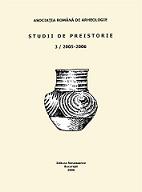Texte, discursuri şi ideologie în cercetarea (e)neoliticului din România
Texts, discourses and ideology in the Romanian (E)Neolithic researches
Author(s): Radu-Alexandru DragomanSubject(s): Archaeology
Published by: Editura Cetatea de Scaun
Keywords: archaeological discourse; ideology; power; socio-political context; (E)Neolithic; Romania
Summary/Abstract: In the present article I intended to point out some aspects of archaeological practice in communist and post-communist Romania which I think deserve more attention than has been paid to them so far, with special reference to the (E)Neolithic period. The first part of the paper deals with the dominant discourse („the scientific discourse”), its proponents and its beneficiaries; in other words, the policy pursued by the academic world, and the power relationships within the branch under consideration. The second part discusses the relationships between the archaeologists’ approach and the socio-political context, as well as the consequences deriving thereof. Based on Christopher Tilley’s opinion (1990, p. 14) that in an analysis of archaeological texts it is possible to distinguish between discourses aimed at perpetuating domination and discourses opposing to it, I maintain that all forms of „scientific discourse” amount to a strategy used either to preserve and perpetuate the control exercised over archaeology by the existing academic elites, or to secure privileged positions within the already established hierarchy. The major means of persuasion in this competition for power is the use of terms with a strong symbolic content, such as „science/scientific”, „scientist”, „inter- or multi-disciplinary”. In short, „the scientific discourse” is the ideology of the academic elites. Following Louis Althusser (1970, p. 59 ff.) I think that ideology is not a tool the elites concerned use deliberately in order to reach their aim. They believe in their own ideology and this provides them with moral authority. On the other hand, they strive to convince everybody to accept their dominant role as being justified and natural. Ideology enables the elites to control archaeological practice and to form the dominant group. As a matter of fact, what this ideology presents as „neutral”, „objective” and „scientific” actually is political.
Journal: Studii de Preistorie
- Issue Year: 2005
- Issue No: 3
- Page Range: 131-148
- Page Count: 17
- Language: Romanian

